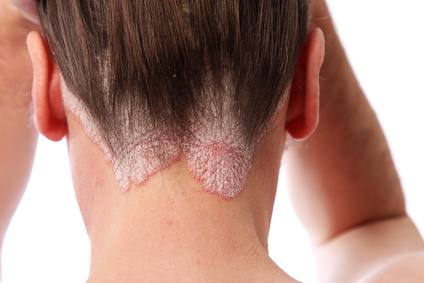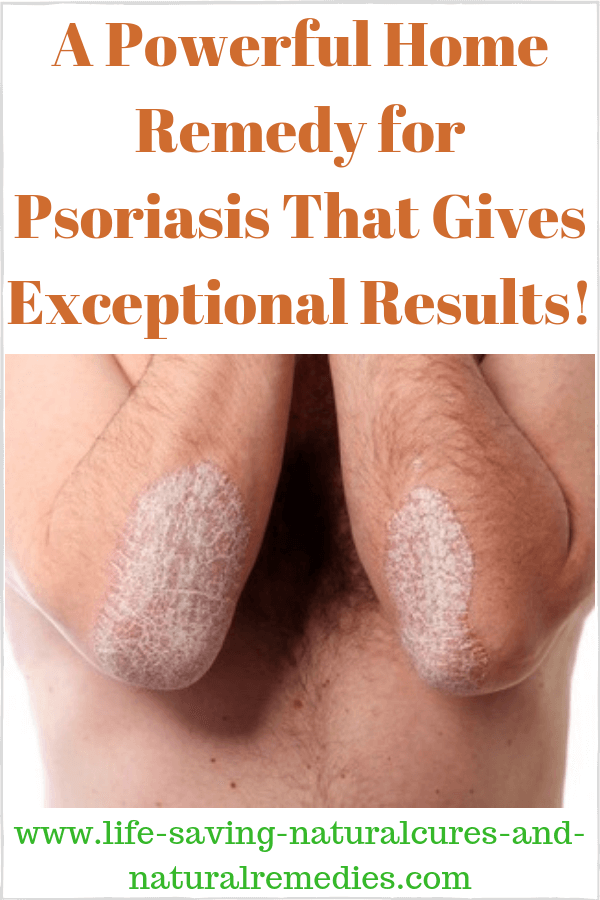Psoriasis Treatments...
Powerful Natural Remedies & Home Therapies for Psoriasis & Eczema...
Essential fatty acids are terrific home remedies for psoriasis and eczema, but only when they're used correctly. Here's why you need to be supplementing with these vital nutrients everyday if you want to rid yourself of this horrible condition...
Article by Troy Sawyer (Certified Holistic Nutritionist, Health & Wellness Coach, Sports Nutritionist)
Updated April 7, 2025 -- This post contains affiliate links
Yes, essential fatty acid supplementation really is one of the most powerful natural remedies for psoriasis and eczema in existence!
There are two types of EFA’s your body must have - omega-3 and omega-6. However, two much omega-6 EFA’s, especially arachidonic acid, and not enough omega-3’s will actually result in inflammation type disorders, including psoriasis and eczema. The problem is, most people’s diets are highly geared toward omega-6 and very low in omega-3.
But here’s the tricky part… Gamma linolenic acid (GLA) is incredibly effective at treating itchy skin conditions such as psoriasis and eczema. In fact, it works a thousand times better than steroid treatments like cortisone (and is a thousand times safer), but GLA is an omega-6!
Evening
Primrose Oil and Fish Oil are Your Psoriasis and Eczema "Savior's"...
So the best way to get your daily supply of GLA, without consuming too much arachidonic acid, is by taking evening primrose oil (this oil is also a rich source of omega-3). Just keep in mind that you will need to take around five 1000mg capsules a day to reap the full benefits.
For omega-3’s, you can’t go past good old fish oil. This oil works so well that even doctors are now prescribing it to their patients for inflammation type diseases.
You will also need to take around five 1000 mg capsules per day of the fish oil for it to have maximum effect. (Yes, that’s a grand total of 10,000 milligrams a day). And as a further benefit of taking both these supplements together, the GLA in the evening primrose oil actually increases the anti-inflammatory effectiveness of the omega-3s in the fish oil… by a big amount in fact!
Be Careful
You Don't Buy Contaminated Fish Oil...
Of course, with fish oil supplements it’s always important to watch out for contamination of mercury and other heavy metals. Make sure the supplement company you purchase from can prove their products are free of heavy metals, rather than just stating on their container that they are “regularly tested for heavy metals”.
As an alternative to fish oil, you can take the latest omega-3 supplements; green-lipped mussels or krill oil instead. These products can be more expensive though so it will depend on whether you can afford them or not.
And our final recommendation is for you to go out and buy a quality LSA (linseed, sunflower and almond) mix from your local health food store. Take a tablespoon of this each day, along with sprinkling some on your salads and cereals. This mix is a very easy and cheap way to give yourself an extra supply of important omega-3's.
Get the
Facts! The Experts Speak on Essential Fatty Acids for Treating Psoriasis and
Eczema...
When it comes to any natural treatment, we always tell people to never just take our word for it.
It’s vital that you always seek validation.
So for more proof on the extraordinary benefits of EFA’s for treating psoriasis and eczema, here's some powerful quotes from expert authors and leading health practitioners on exactly why you need to be taking these crucial nutrients…
"A recent German study highlighted the anti-inflammatory benefits of omega-3 fatty acids. These oils quickly reduced inflammation in twenty patients suffering from psoriasis. Omega-3 fatty acids offer yet another benefit to psoriasis sufferers. Ten percent of psoriasis patients also develop a form of arthritis known as psoriatic arthritis. Studies show that 1 to 3 grams daily of omega-3 fish oils can help both conditions."
- Earl Mindell’s Secret Remedies by Earl Mindell, R.Ph., Ph.D. (available from Amazon.com)
"Basically, the omega-3s encourage the body’s production of inflammation-suppressing compounds. They help remind the body to turn inflammatory reactions off when they are no longer needed. GLA (gamma-linolenic acid) is technically an omega-6 fatty acid, but it behaves more like an anti-inflammatory omega-3. It enhances the inflammation-suppressing effect of omega-3s."
– The Inflammation Syndrome: The Complete Nutritional Program to Prevent and Reverse Heart Disease, Arthritis, Diabetes, Allergies, and Asthma by Jack Challem (available from Amazon.com)
"Peter Mayser at Justus Liebig University in Giessen, Germany, treated psoriasis with intravenous omega-3 fatty acids and found that two types of psoriasis responded much better to those infusions than they did to omega-6 fat infusions. A nutritious diet and vitamin D tend to “quiet” your immune system so it doesn’t overreact to foreign proteins that come in contact with the skin."
– The Vitamin D Cure by James Dowd and Diane Stafford (available from Amazon.com)
"The omega-3 fatty acids in flax are converted into “good” (series 1 and 3) prostaglandins that may help reduce inflammation, pain, and allergic response in a number of conditions. In a study of patients with eczema (chronic, itchy inflamed skin), researchers found deficient levels of omega-3 EFA’s, EPA, and DHA in body tissues, combined with excessive levels of omega-6 EFA’s. This study demonstrates the importance of higher omega-3 intake, as well as the need to achieve the correct balance between omega-3 and omega-6."
– The Encyclopedia of Popular Herbs by Robert S. McCaleb, Evelyn Leigh, and Krista Morien (available from Amazon.com)
"The consumption of too much omega-6 fat leads to high levels of arachidonic acid (AA). Higher levels of arachidonic acid can promote inflammation. When we have insufficient omega-3 fat, we do not produce enough DHA, a long-chain omega-3 fat with anti-inflammatory effects. High levels of arachidonic acid and low levels of omega-3 fats can be a contributory cause of heart disease, stroke, autoimmune diseases, skin diseases, depression, and possibly increased cancer incidence."
– Eat to Live: The Revolutionary Formula for Fast and Sustained Weight Loss by Dr. Joel Fuhrman (available from Amazon.com)
"The omega-3 fatty acids found in fish and flaxseed oil decrease inflammation, says David Edwards, M.D., a nutritionally oriented physician in Fresno, California. On the other hand, he says, the fatty acids in most polyunsaturated vegetable oils, such as corn and safflower, and in hydrogenated oils, found in margarine and many baked goods, increase inflammation. 'A person who gets omega-3 fatty acids in adequate amounts will not get bursitis or tendinitis as readily' he says."
– Alternative Cures: The Most Effective Natural Home Remedies fir 160 Health Problems by Bill Gottlieb (available from Amazon.com)
"DHA, another omega-3 fatty acid from fish oil is important for the normal functioning of the nervous, immune, and cardiovascular systems, and helps regulate inflammation during infection. It is used to treat a wide range of diseases including arthritis and psoriasis, and can help reduce blood pressure. …Omega-6 fatty acids, found in both olive and corn oil, when consumed in excess amounts, can produce inflammation."
– Viral Immunity by J. E. Williams, O.M.D. (available from Amazon.com)
"Fish oil supplements are particularly rich in an omega-3 fatty acid called eicosapentaenoic acid (EPA), which discourages inflammation, says Priscilla Evans, N.D., a naturopathic doctor at the Community Wholistic Health Centre in Chapel Hill, North Carolina. EPA is also available from flaxseed oil. Like throwing a track switch to reroute a train, EPA reroutes the chemicals in your body early in the inflammation process. With the flick of that switch, the chemicals start to fight inflammation."
– Nature’s Medicines: From Asthma to Weight Gain, from Colds to High Cholesterol – The Most Powerful All-Natural Cures by Gale Maleskey (available from Amazon.com)
All quotes are sourced and available from this link The Powerful Role of Omega-3 Fatty Acids in Preventing Diseases of Inflammation
Go from home remedies for psoriasis - essential fatty acids - to more psoriasis treatments
Recent Articles...
-
Best Natural Remedies for Hypothyroidism, Weight Loss and Increasing Energy...
Apr 15, 25 10:00 AM
Wow! What an awesome site! So much information. I fall under the "put 10 pounds on a year for five years" and now I top the scale at 230 pounds! My physician sent me for tests, results indicate hypoth… -
6 Powerful Home Remedies for Excessive Sweating That Work!
Apr 08, 25 10:00 AM
Excessive sweating is most often associated with stress and anxiety, being overweight, nutritional deficiencies and poor circulation. Health problems such as diabetes, heart problems, hyperthyroidism…



Yes, We Value Your Comments and Opinions...
Ask a question or have your say on what you've just read by leaving us a comment in the box below...